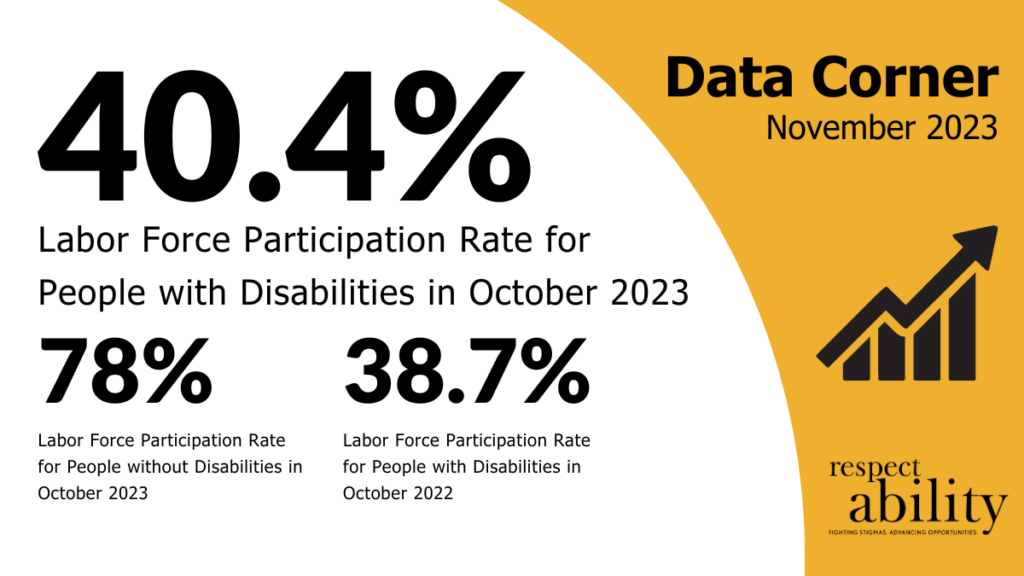 Monthly Employment Update for People with Disabilities
Monthly Employment Update for People with Disabilities
According to the latest National Trends In Disability Employment (nTIDE) report:
- The labor force participation rate for people with disabilities grew to 40.4% in October 2023 from 38.7% in October 2022. This continues an upward trend we have observed throughout this year. Workers without disabilities increased their labor force participation rate from 77.1% in October 2022 to 78.0% in October 2023.
- The employment-to-population ratio for people with disabilities rose from 35.5% in October 2022 to 37.2% in October 2023. For people without disabilities, the employment-to-population ratio increased slightly from 74.6% to 75.2%.
Unemployment Rate
According to the US Department of Labor (DOL) disability employment statistics, the unemployment rate of people without a disability held steady at 3.5%, which is within the range of 3-5% deemed healthy by most economists. However, the unemployment rate amongst those with a disability is more than two times higher at 7.8%.


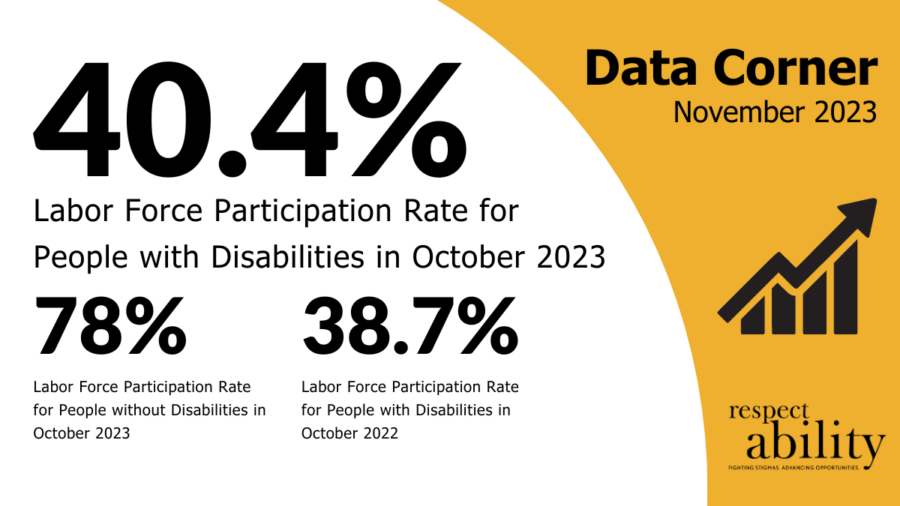
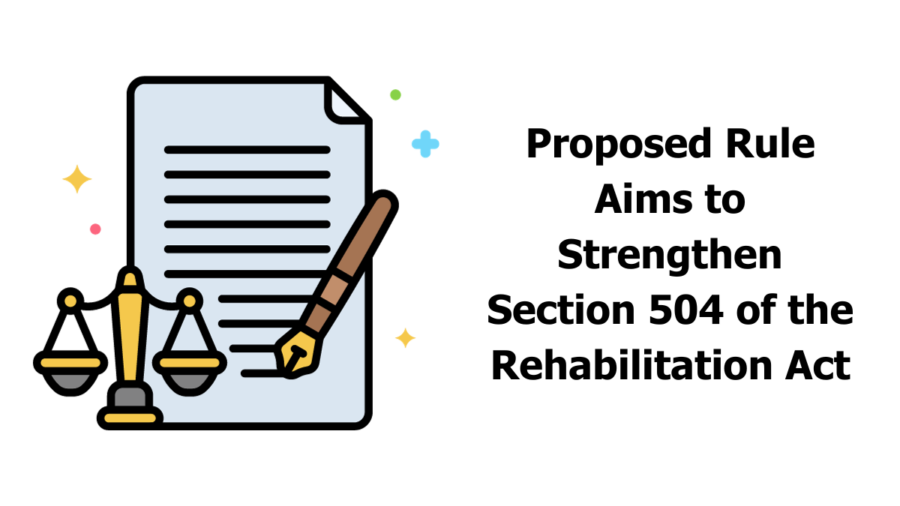
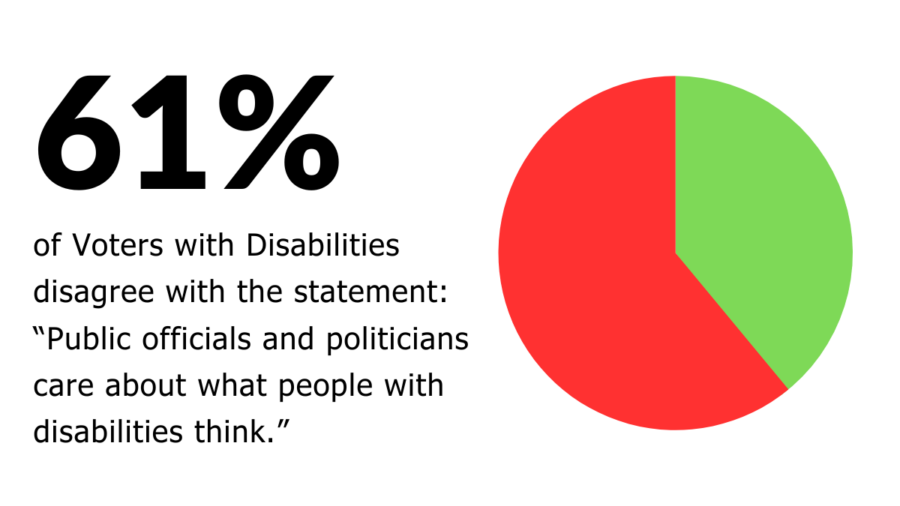
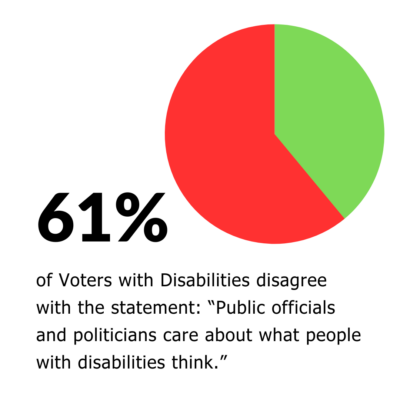 It has long been a source of consternation to members of the disability community that political candidates and elected officials rarely speak publicly about issues specific to disabled voters. In fact, few politicians even address how broader issues that they do speak about impact people with disabilities. After most presidential debates, there is a predictable barrage of social media posts from disabled voters who are disappointed that the candidates never mentioned the word “disability,” let alone addressed some of the issues that impact our daily lives the most.
It has long been a source of consternation to members of the disability community that political candidates and elected officials rarely speak publicly about issues specific to disabled voters. In fact, few politicians even address how broader issues that they do speak about impact people with disabilities. After most presidential debates, there is a predictable barrage of social media posts from disabled voters who are disappointed that the candidates never mentioned the word “disability,” let alone addressed some of the issues that impact our daily lives the most.
 With California wrapping up its legislative session on September 14 and North Carolina adjourning on October 13, state legislatures are going into recess just in time for autumn. Even the full-time representatives are largely done with their major efforts for 2023.
With California wrapping up its legislative session on September 14 and North Carolina adjourning on October 13, state legislatures are going into recess just in time for autumn. Even the full-time representatives are largely done with their major efforts for 2023.
 RespectAbility’s federal policy work is often done in coalition with other organizations, ensuring input from a wide cross-section of the disability community. Check out our latest advocacy highlights from working in partnership with the Consortium for Constituents with Disabilities (CCD), which is the largest coalition of national disability organizations that focus on policy, and the National Coalition on Accessible Voting (NCAV), which is a coalition of organizations dedicated to protecting, promoting, and expanding voting accessibility.
RespectAbility’s federal policy work is often done in coalition with other organizations, ensuring input from a wide cross-section of the disability community. Check out our latest advocacy highlights from working in partnership with the Consortium for Constituents with Disabilities (CCD), which is the largest coalition of national disability organizations that focus on policy, and the National Coalition on Accessible Voting (NCAV), which is a coalition of organizations dedicated to protecting, promoting, and expanding voting accessibility. 
 Over the past month, two of RespectAbility’s major workforce initiatives, the Building Better Futures initiative (BBFI) and our Enabling Economic Independence to Work program (EIW), made great strides forward.
Over the past month, two of RespectAbility’s major workforce initiatives, the Building Better Futures initiative (BBFI) and our Enabling Economic Independence to Work program (EIW), made great strides forward.
 “Nothing about us without us.”
“Nothing about us without us.”
 What if you had to choose between paying your rent and marrying your significant other? People with disabilities who receive Supplemental Security Income (SSI) are faced with this decision every day. The SSI Savings Penalty Elimination Act raises asset limits for SSI recipients and couples. This proposal, while simple, could have a significant impact on SSI recipients and their families.
What if you had to choose between paying your rent and marrying your significant other? People with disabilities who receive Supplemental Security Income (SSI) are faced with this decision every day. The SSI Savings Penalty Elimination Act raises asset limits for SSI recipients and couples. This proposal, while simple, could have a significant impact on SSI recipients and their families.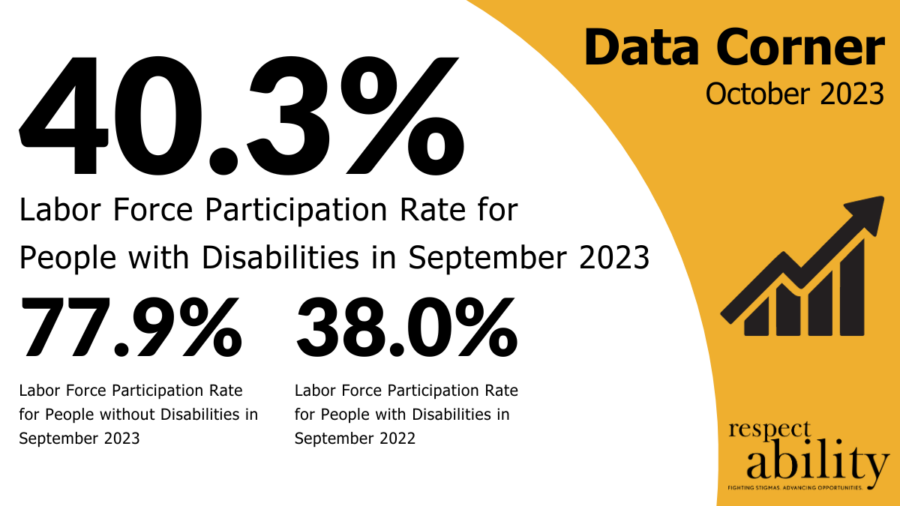

 Since 1971, the Judge Rotenberg Center in Canton, Massachusetts has served as an institution for individuals with developmental disabilities. To help patents stop dangerous behaviors, the center uses aversive therapy, in which a patient experiences a form of discomfort given by a therapist if the patient engages in perceived inappropriate behaviors. The goal is for the patient to recognize that continued occurrences of such behaviors will result in further exposure to the discomfort given by the therapist, leading them to stop the behavior.
Since 1971, the Judge Rotenberg Center in Canton, Massachusetts has served as an institution for individuals with developmental disabilities. To help patents stop dangerous behaviors, the center uses aversive therapy, in which a patient experiences a form of discomfort given by a therapist if the patient engages in perceived inappropriate behaviors. The goal is for the patient to recognize that continued occurrences of such behaviors will result in further exposure to the discomfort given by the therapist, leading them to stop the behavior.


